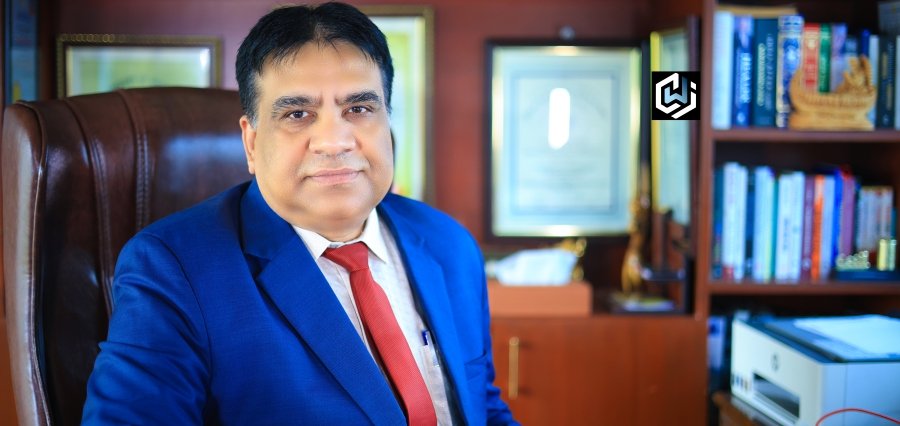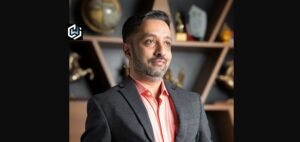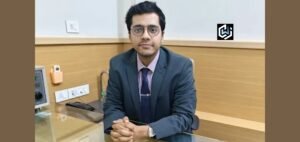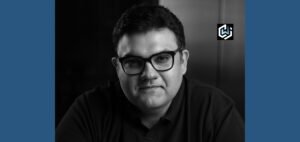From his earliest days in clinical rotations, the human hemisphere was not just a hardened skull to Dr Pashupati Nath Mishra, but a controller guarding the ultimate frontier. He was captivated by the complexity and precision of the brain—an organ that contained the whole of a person: personality, memory, consciousness. It was a chaotic, complex maze of function, and its absolute mystery felt like a magnet. He recognized he wanted to practice medicine, but a surgical focus had not taken shape until he stood in a freezing, humming theatre in Calcutta, watching Dr Sandeep Chatterjee.
The scene was common: the patient lay still, life slowly slipping away from a rapidly expanding hematoma. Dr Chatterjee moved with a chilling economy of motion. The scrub nurse’s breath was the only sound as the drill buzzed, the skull was opened, and the delicate, gray matter was revealed. Then there was the intervention—an elegant, precise surgical strike, a maneuver that took seconds, but where time felt more like centuries. As the suction released and the damage was repaired, almost instantaneously, the monitors read differently, and the pulse could be felt restored. One delicate and precise surgical intervention had not just preserved life, but had returned dignity and function to a human being. In that flash, the future was cemented for Dr Pashupati Nath.
The Crucible of Calm
That pursuit of lethal, life-giving precision drove him into the rigorous postgraduate training at Apollo Hospitals, Chennai. Here, he encountered his two great influences: Prof K.R. Sureshbapu and Dr B. Chendilnathan. They were masters of contrast and cohesion. Inside the operating theatre, where blood pressures soared and unexpected crises erupted, they were monuments of calm. They moved without panic, their voices low and steady, treating the brain like a priceless, fragile blueprint that allowed zero error.
Yet, outside the OT—in the quiet of the post-operative recovery units—their demeanor transformed. Their compassion was fierce as they sat at bedsides, held hands, and contended with the heavy ethical responsibilities of every decision made. They demonstrated to Dr Pashupati Nath that neurosurgery was not a cold, distilled version of science, but rather a meticulous, spiritual endeavor.
The long hours, the mental and emotional stamina it demanded, and the burden of life and death in one’s hands— Dr Pashupati Nath chose not to recoil or back away from any of it. He accepted everything, finding meaningful and unequivocal purpose in an unrelenting pursuit of perfection. He was assuredly on the pathway of neuroscience as he understood that every demanding day offered a chance to rehabilitate at least a little bit of light back into the human mind’s darkness.
The Surgeon’s Metamorphosis: From Craft to Compassion
In his youth, Dr Pashupati Nath was a man obsessed with the crucible of the operating room. Like many promising young surgeons, his early focus was a near-pure pursuit of technical challenge—mastering the delicate anatomy, achieving flawless precision, and conquering the sheer urgency of neurosurgery. His focus was procedure-centered: the elegance of removing a tumor, the perfect arc of clipping an aneurysm. But the long arc of his career brought a profound realization. Today, his approach is profoundly holistic. Experience taught him that the ultimate goal is not just the flawless execution of a procedure, but the healing of a person. His decisions shifted from being about what could be done to what should be done, prioritizing the patient’s goals, identity, and long-term quality of life above all else. This evolution—from Confidence to Wisdom—taught him that sometimes, the greatest act of care is the choice not to operate.
The Code of the ‘Most Recommended’
The recognition as ‘The Most Recommended Neurosurgeon’ is a direct reflection of this philosophical shift, built on five non-negotiable pillars of practice. Dr Pashupati Nath sees every patient as a human being with a family and a future. His Unwavering Commitment to Patient-Centric Care means listening deeply, providing honest education, and involving them fully in the decision process, fostering a trust that no machine can replicate. This is balanced by Technical Excellence, recognizing that in neurosurgery, precision isn’t optional; it’s life-altering. He insists on Transparent Communication, understanding that patients crave clarity even when the news is difficult. This integrity, coupled with Empathy and Accessibility—the kind word before the OT, the late-night reassurance—forms the lasting impression that defines his legacy. Finally, he champions Teamwork and Respect for Colleagues, knowing that no single surgeon can succeed without the harmonious efforts of the entire multidisciplinary unit.
High-Stakes Specialization and Ethical Precision
Dr Pashupati Nath thrives in the highest-stakes areas of his field, where the difference between recovery and disability is measured in microns. His work in Cerebrovascular Neurosurgery—dealing with aneurysms and hemorrhages—is a race against time, demanding millimeter-level precision and a calm mindset under intense pressure. In Skull Base & Intracranial Tumor Surgery, he performs intricate planning and finesse to remove deep-seated lesions near critical structures, often calling the preservation of neurological function “one of the most satisfying achievements.” Similarly, in Complex Spine Surgery, his focus is not mere removal, but functional recovery, helping patients reclaim their independence.
He integrates Technological Precision with the essential Human Touch. Tools like neuro-navigation provide real-time, millimeter-accurate guidance, making procedures safer and less invasive. However, every action is rooted in his Stronger Ethical Foundation. When facing a complex case, Dr Pashupati Nath begins by weighing the potential for meaningful recovery against surgical risk, always prioritizing the patient’s quality of life and dignity. Continuous ethical reflection, patient autonomy, and non-maleficence are foundational. He insists on doing what is right, not just what is possible, because, as he often reflects, when you hold someone’s brain in your hands, you hold their entire world.
The Discipline of a Life-Saver
Neurosurgery, by its very nature, demands a superhuman reservoir of mental and emotional discipline. Dr Pashupati Nath sustains his resilience through an intentional practice: staying focused during crises and strictly processing emotions afterward through deliberate reflection. He draws strength and purpose from seeing patients walk out of the hospital, a powerful reaffirmation of his calling. To remain grounded, he relies on a structured routine, daily mindfulness, and quality time with his family. He maintains a fierce inner compass, reminding himself that while surgical perfection remains the goal, compassion and presence are equally vital—both for the patient’s healing and for his own sustainable well-being.
The Art of Transparent Communication
Dr Pashupati Nath fundamentally believes that trust begins with deep listening—truly hearing and understanding a patient’s fears and expectations. To bridge the terrifying gap between a complex diagnosis and a family’s comprehension, he employs simple, non-technical language, often using visual aids to explain risks, outcomes, and alternatives with complete transparency. He deliberately avoids rushing these conversations, encouraging questions until every doubt is addressed. Recognizing that families are integral to recovery, he involves them fully in the treatment plan, ensuring that all decisions are shared and collaborative. This respectful, human-centered approach not only empowers patients but fosters the profound trust necessary for their emotional and physical healing.
Vision: Excellence Meets Equity
Looking to the future, Dr Pashupati Nath foresees a revolution driven by AI, advanced imaging, and personalized medicine, making procedures safer and smarter. AI will predict risks and assist in real-time intraoperative decisions, while genomics will revolutionize brain tumor management. However, the legacy he strives to leave transcends technology: he wants to be remembered for “excellence with empathy.” His mission is to ensure this world-class care is equitable. He actively advocates for infrastructure development in Tier 2 and 3 cities, expands specialist training, and leverages telemedicine to bridge care gaps. Dr Pashupati Nath’s ultimate goal is to make advanced neurosurgical care in India not only state-of-the-art but a genuinely human-centered and accessible pillar of the nation’s progress.





